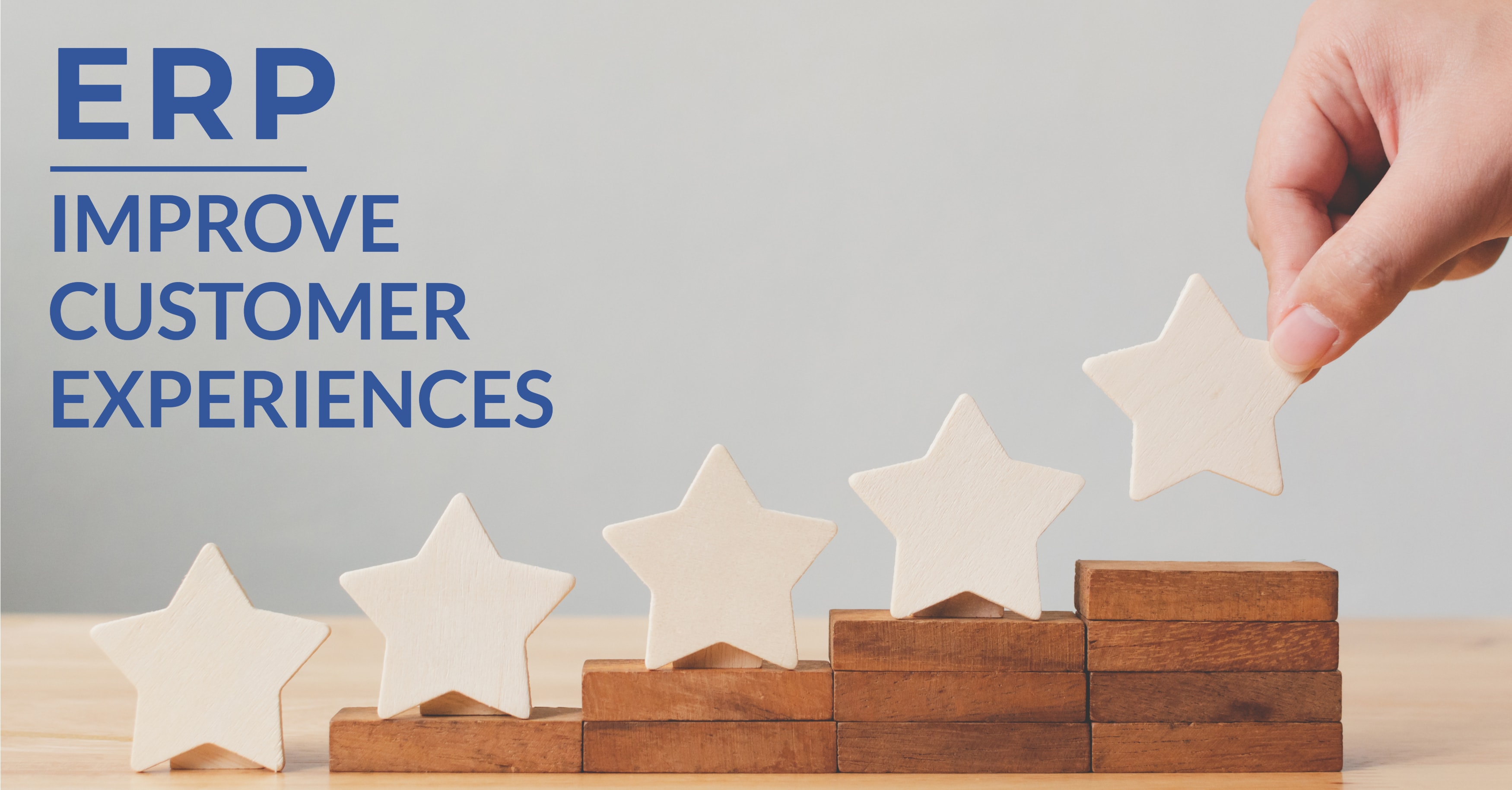
Improve Customer Satisfaction Rates with ERP
Material Requirements Planning, General Ledger, Bill of Materials—chances are, your ERP checklist includes these features, as well as other functionality designed for the back office and shop floor management. But what about the customer experience? 86% of buyers are willing to pay more for a great experience, and 73% point to customer experience as an important factor in purchasing decisions. However, the potential of using ERP to optimize customer satisfaction is often overlooked by manufacturers and distributors.
With customer expectations higher than ever, businesses can’t afford to miss out on any opportunity to optimize experiences. Being a connected enterprise means bringing different departments and offices together to meet the demands of your buyers. This can be achieved through implementing ERP software. We explain how ERP can help you create better customer experiences.
Streamline the Supply Chain
Supply chains have never been more complicated. Consumers crave goods tailored to their specific needs as well as consistent experience across multiple channels. Managing a complex supply chain and ensuring each customer gains personalized, quality products and services on time requires nuanced control. This isn’t possible to achieve if you’re relying on disjointed applications and spreadsheets. ERP software incorporates financials, production planning, orders, delivery and more into a single solution to help you streamline your supply chain.
ERP also reduces manual data entry. Manual entries introduce risk into your supply chain and customer service. If someone accidentally keys in the wrong information, customers could end up with late orders or get the wrong product at their door. ERP maintains a central hub of data, automatically updating data and triggering the next stage of the workflow. Automated processes enable manufacturers to execute tasks consistently and efficiently. A flexible solution such as Epicor® ERP services will standardize your supply chain while also giving you the agility to respond to customer needs. When customers change their orders, your production plant can instantly accommodate their requests.
Improve Demand Planning
There are few things more embarrassing than being unable to fulfill a customer order because of inadequate stocking. ERP can help you eradicate this issue by providing interconnected forecasting and inventory planning capabilities. Predictive analytics will mine your historical data to identify trends and accurately predict demand. By pairing this information with automated inventory levels, you can develop a proactive plan to order materials and schedule production to meet customer demand.
Epicor® ERP goes a step further by providing an integrated eCommerce platform, Epicor® Commerce Connect (ECC). In addition to allowing businesses to easily develop dynamic online stores, ECC gives users access to inventory levels, so your product listings remain up to date. That means online customers won’t be attempting to order items that aren’t available. Your website can display which items are out of stock or limited. With integrated tools, you can improve demand planning and provide customers with greater transparency to increase satisfaction.
Gain Complete Insights
A common obstacle for improving customer experiences is limited visibility. Organizational silos result in disorganized, widely dispersed data. This prevents workers from gaining a full view of customers. By bringing together multiple modules, ERP consolidates data into one solution. Authorized users throughout the enterprise can access this data through role-based dashboards and reports, easily drilling down into information to gain nuanced insights. Furthermore, ERP vendors are beefing up their solutions with innovative tools such as AI, BI and IoT technology. These features provide real-time insights and analyze your datasets to deliver accurate predictions and evaluate performance.
Additionally, an ERP integration can connect your applications to provide a single source of truth. One of the most common integrations is for ERP and CRM software. Connecting these two systems gives sales, marketing and service teams instant access into back-end data, such as pricing, orders and inventory. This helps your front offices tailor experiences to each customer and keep consumers up to date on the status of their orders. Back offices can also leverage CRM data to deepen their understanding of customers, so they can find out how they can elevate processes or deliver more relevant services and products. This level of insight is vital to improving customer experience.
Wrap Up
Whether you’re enticing new customers or trying to increase loyalty rates, your ERP can be of great assistance in elevating customer experiences. A streamlined, comprehensive solution allows your users to be one step ahead of your customers, so you can also stay ahead of your competition.
For over 25 years, Datix has provided premier solutions and services to manufacturers and distributors. We’re committed to helping each client fix their pain points and optimize their business performance. As a one-stop shop, our certified consultants offer implementations, customizations, cloud hosting and more to ensure you’re getting the most from your software investment. Additionally, our Unity integration solution will seamlessly connect Epicor® or Infor ERP with your CRM, Marketing Automation or eCommerce platform to enhance enterprise visibility.
Make sure you’re using your ERP software to deliver quality customer experiences. To learn more, contact one of our ERP experts today!

